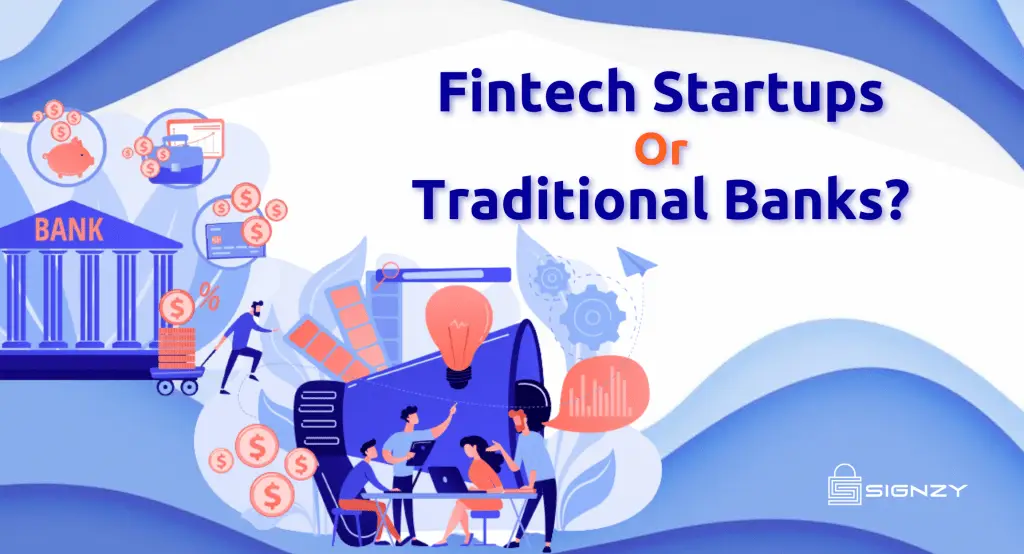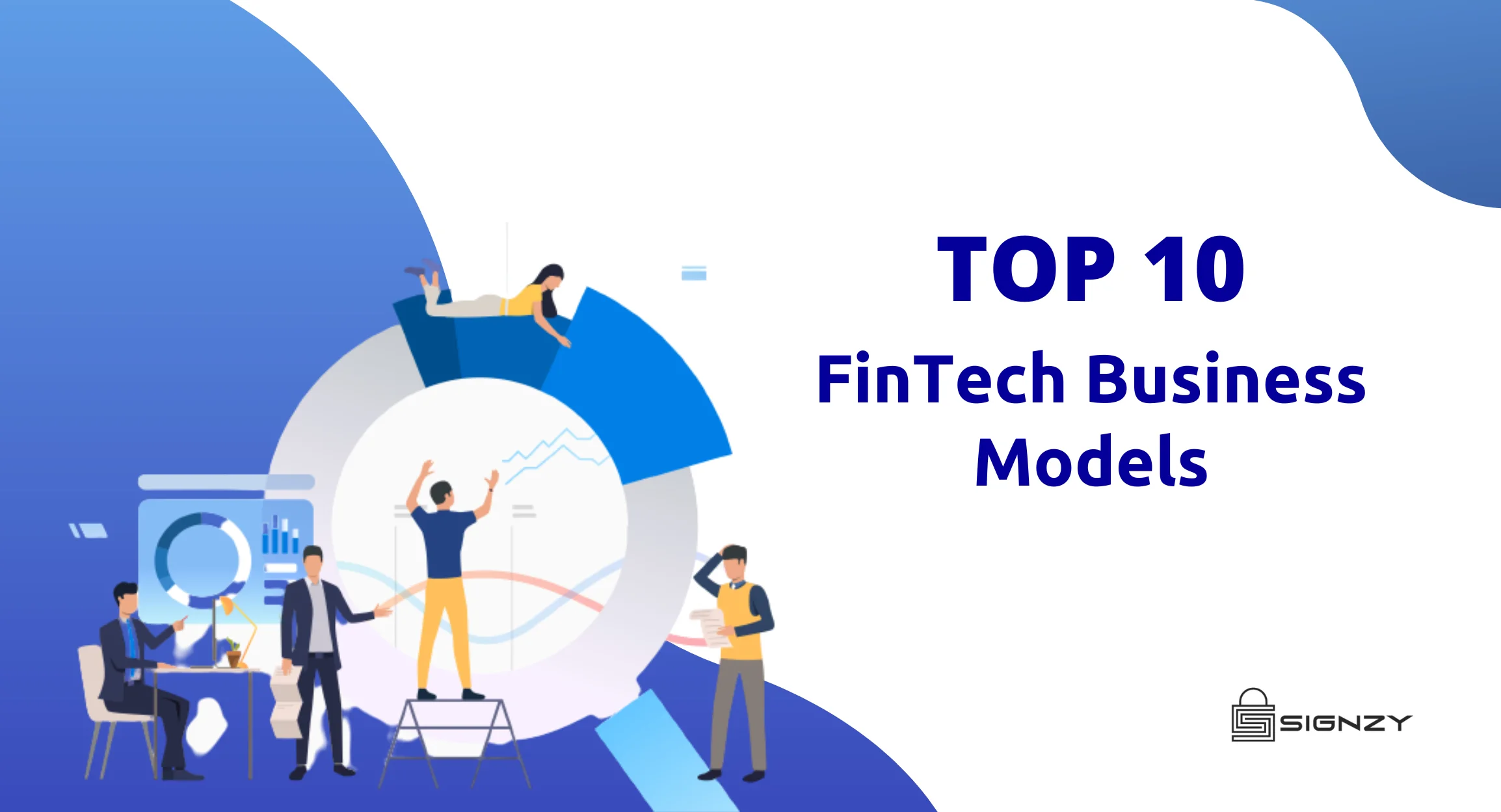There are 6,636 fintech startups in India, which has one of the fastest-growing fintech sectors in the world. The market for Indian fintech is expected to be worth $150 billion by 2025. But while the industry soars, traditional banking is the one that takes the hit. As a result, conventional methods are dropped for improved digital solutions.
Hence the question arises, “Will fintech startups replace traditional banking?” Well, to answer that, we must fully understand the entire scenario. So let’s have a look at it.
Valuing Fintech Startups
The approach used to value fintech businesses relies on various factors, including the industry they serve and where they are in their lifecycle.
Traditional approaches, such as the discounted cash flow method, comparable transaction method, price-to-earnings ratio of comparables, etc., can be used to value mature companies with an established company and stable cash flows.
There are specific approaches that can be used for valuing investments for very early-stage fintechs if they have not yet attained a critical mass or market share in a particular area or niche market. This can be the scorecard valuation method, Berkus method, risk factor summation method, venture capital method, etc.
Specific multiples can be applied for the valuation of a fintech that has visibility based on the business segment. For instance, a fintech business with a loan portfolio can be valued using the enterprise value to loan book ratio. A company involved in payments can be valued using a multiple for transaction value or a comparable ratio of enterprise value to the number of active users. A fintech business in asset management can be valued using the enterprise value to assets under management ratio, etc.
Fintech Startups Are Sweeping Into Traditional Banks Territories
According to statistics, traditional banks in India have lost one-third of new revenue due to current fintech startups. Apart from the payments business, which is how the fintech space started, many segments, even in the Indian fintech space, offer solutions in specific financial areas like peer-to-peer lending, insurance, wealth management, and digital payments. All of these have enormous growth potential.
Therefore, for firms functioning in the fintech category, it is not about EBITDA or profitability but instead being in a sector with an addressable market, much like conventional startups.
Because of this, a purely low-margin payment business may not have much value and may not be bought out by businesses looking to create an ecosystem or established companies looking to gain a technological edge. This was the case when Axis Bank bought Freecharge, and Bajaj Finance launched Bajaj Pay while simultaneously launching five marketplace products to become a fintech eventually.
We can also observe that the time of only operating in the payments sector is finished, as many fintech has moved on to creating an ecosystem. Once a fintech has an ecosystem, there is a significant chance to cross-sell due to the big addressable market.
Based Valuation For Fintech Startups
The optimum method will be to evaluate these firms on a SOTP (Sum Of The Parts) basis for businesses having varied risks and rewards, depending on the sub-sectors of the industries like payments, lending, investments, etc.
A fintech could represent various sub-sectors, yet under current law, none of these may call for a banking license. In addition, several industries don’t need a banking license, like wealth tech, insuretech, peer-to-peer lending, etc. Therefore, the majority of financial startups are emerging in these industries. For example, consider Cred, a fintech with a fantastic data bank to use the data for cross-selling.
Fintechs provide P2P payment services despite not possessing a banking license; however, this is restricted by the fact that they cannot store customer funds as deposits. On the other hand, banks constantly lose consumers to these fintech companies. Banking as a Service (BaaS), which enables banks to share their infrastructure with these fintech businesses, is thus emerging due to the collaborative atmosphere between banks and fintech players.
We can see why having a banking license could benefit fintech by giving them a technological advantage, allowing them to grow up more quickly, and giving them access to a vast data mine for cross-selling.
Where Fintech Banking Is Headed
Several fintech businesses have applied for and been granted licenses to operate as banks during the past couple of years. An instance in point is the recent purchase of a Small Finance Bank by PhonePe and Centrum. The fintech industry aims to challenge the status quo through innovation, agility, and quick decision-making.
Although it may seem illogical for these businesses to choose the traditional banking route, one must keep in mind that these fintechs are disruptive because of the technology they provide, which is precisely what the traditional banking system lacks.
As a result, fintech companies are creating more than just ecosystems. They are also creating marketplace platforms for fintech companies, such as the insurance platform Policybazaar, which recently announced partnerships with Paytm, Ola Financial, private sector lender IndusInd Bank, and a small group of consortium participants. This was to create a New Umbrella Entity (NUE) for a national payments infrastructure company.
In Conclusion
As previously stated, many major banks have made attempts to partner with or buy fintech startups to develop their digital products. Meanwhile, fintechs are presently attempting to resemble banks. As a result, we may observe a wide range of fintechs across areas working toward gaining a banking license, from payment businesses to lending marketplaces.
It is important to note that all financial institutions must improve their financial processes. If you represent a financial enterprise, we might be able to help you with quality resources. Signzy’s AI-driven No-code products and services can improve your processes.
About Signzy
Signzy is a market-leading platform redefining the speed, accuracy, and experience of how financial institutions are onboarding customers and businesses – using the digital medium. The company’s award-winning no-code GO platform delivers seamless, end-to-end, and multi-channel onboarding journeys while offering customizable workflows. In addition, it gives these players access to an aggregated marketplace of 240+ bespoke APIs that can be easily added to any workflow with simple widgets.
Signzy is enabling ten million+ end customer and business onboarding every month at a success rate of 99% while reducing the speed to market from 6 months to 3-4 weeks. It works with over 240+ FIs globally, including the 4 largest banks in India, a Top 3 acquiring Bank in the US, and has a robust global partnership with Mastercard and Microsoft. The company’s product team is based out of Bengaluru and has a strong presence in Mumbai, New York, and Dubai.
Visit www.signzy.com for more information about us.
You can reach out to our team at reachout@signzy.com.
Written By:

Signzy
Written by an insightful Signzian intent on learning and sharing knowledge.




